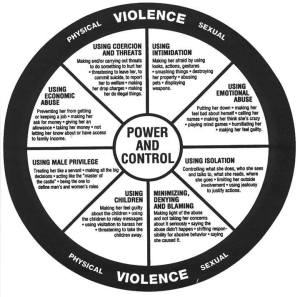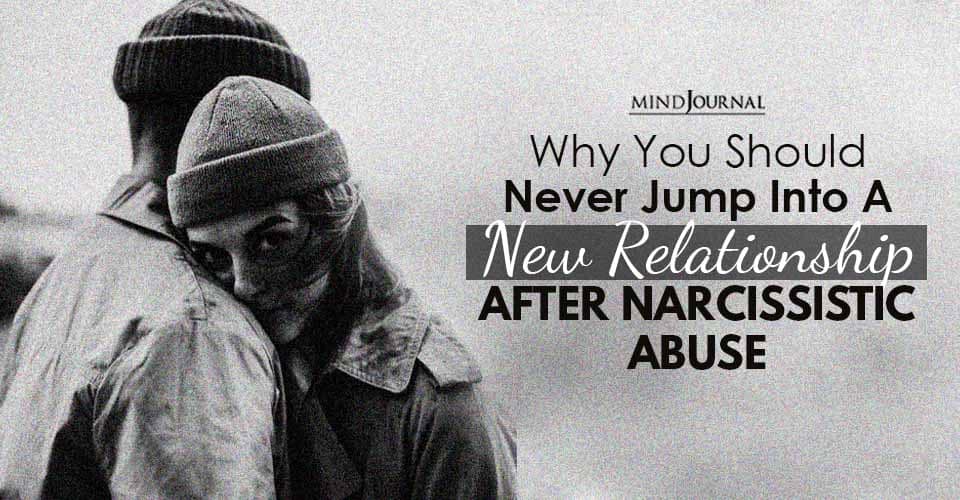You might be undergoing a lot of emotional distress after ending relationship with a narcissist. But, if you are trying to jump into a new relationship after narcissistic abuse, then hold on.
The Wheel of Abuse
Not all abusive relationships involve physical abuse. Emotional and mental abuse can be every bit as damaging, and sometimes more so.
A new friend of mine (a survivor of several abusive relationships with narcs) and I were talking on Facebook. Rather than try to paraphrase, I’ll quote her directly–and then give my own opinions.

Friend:
“I realized he [her malignant narcissist ex-boyfriend who she’s still in minimal contact with but who is still trying to gaslight her and get her attention by stalking her on Facebook] did everything on that wheel except for the Economic abuse. He started to subtle test the boundaries…and realized I wasn’t game. Although I believe he probably still believes I’ll contact him again. It’s amazing, [Lauren.]
The more time your away, they stronger you feel. Your self-esteem comes back slowly. I get those frightened moments when I think my new boyfriend will just Abandoned me out of nowhere. I understand why the Psychopathic free support group did not recommend a relationship right away. They know you suffer from PTSD from the aftermath of this abuse. It’s difficult. I find myself having dark flashbacks. I also believe you have to be careful and choosy about your women friends and surround yourself with only kind people. We are fragile and vulnerable after this abuse.
Related: 8 Signs You Are Ready For A New Relationship
My reply (My original reply was short–I embellished it when I wrote this post. I hope my friend sees it).
These are all great points. It makes sense to stay out of relationships if you’ve just escaped from an abusive one because of the PTSD you probably have or even worse problems such as major depression–you need time to find yourself and work on yourself.
You need time to be selfish and not have to answer to anyone because you’ve been giving, giving and giving some more with nothing to show for it in return.
Related: Why It’s So Hard To Forgive Yourself And Trust Again After A Toxic Relationship
We’re mentally and emotionally exhausted and need time to recover, just as if we’re recovering from any illness. We need to not have to be responsible for someone else’s welfare or self-esteem or happiness for a while before taking the plunge into a new relationship.
We need to take care of ourselves and find out who we are–whether that means going to therapy, writing a journal, turning that journal into a public spectacle like a blog or video diary, taking up martial arts, yoga, or finding God.
Related: How it Feels Like to Live With Trauma Post An Abusive Relationship
We need time to heal.
Jumping into any new relationship after narcissistic abuse–even with a non-narc–when you’re this vulnerable is almost guaranteed to fail and retard you in your self-growth, and if you’ve been attracted to another narcissistic abuser (which is common in co-dependent, PTSD and Borderline women), you may wind up much worse when all is said and done.
We’re like addicts. Narcs need their narcissistic supply; we codependents need our narcs.
Let’s face it: Narcissistic suitors (male or female)–at first–make us feel alive, vital and fulfill our wildest romantic and sexual fantasies (when they are trying to trap you as their prey). In a weakened state like PTSD or depression, your judgment is not going to be great and you re going to be VERY suggestible.
Most likely, you’ll also become unconsciously attracted to a romantic partner who reminds you of the narc you just left (or who left you). He made sure you can’t forget him easily, even if he was terribly cruel at the end.
Also, we tend to be attracted to the same type of person anyway. So if you’re usually or always attracted to narcissists, then most likely your taste is not going to change.
Getting involved too early after the end of a relationship with a narcissist is dangerous. Even with a non-narcissist, old patterns will still come up and you will be hypervigilant and suspicious of your new partner, causing them confusion and eventual discord.
Related: The Honest Truth About Life After A Toxic Relationship
If you’re falling for a non-narc, that’s a good sign, but if you just left an abusive relationship, please wait. Envision a giant red STOP sign.
Be friends instead. Now’s not the time to get involved beyond that level. If you met someone who truly cares for you, they won’t mind waiting a while and being friends with you.
If you’re already falling hard for someone, I know it’s going to be really hard to resist the pull of a new romance. It’s a powerful force, built into normally-wired people’s genes.
But remember, even though it feels like the most exciting, heady, intoxicating rush you ever felt, that feeling won’t last: what you feel is infatuation, a crush–actually caused by changes in the brain that act like a euphoric drug. That’s really what it boils down to.
Related: Things To Remember When You Meet a Good Guy After The Wrong One
Infatuation so soon or new relationship after narcissistic abuse is really just a form of transference onto a phantom “therapist” [the person you are infatuated with] when you are at your most vulnerable. You’re looking for someone to rescue you.
There is no Prince Charming. A love relationship cannot rescue you from yourself, your memories, or your PTSD. By its nature, it can’t. You are the only one who can make you well, with the help of therapists, counsellors or another other trusted person who is not involved sexually or romantically with you.
So be patient, wait until you heal yourself and feel more confident. Then if you fall in love, dive in and enjoy it–and with any luck, it might turn into the real thing.
Thank you to Mary Pranzatelli for this idea.
Written by Lauren Bennett
Originally appeared on Lucky Otter’s Haven











Leave a Reply